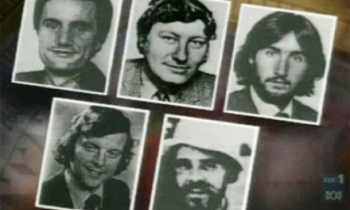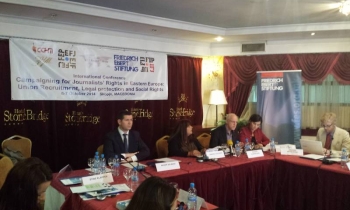Blasphemy laws are on their way out of the United Kingdom (UK).
The House of Lords voted Wednesday night in favour of abolishing the criminal offences of blasphemy and blasphemous libel from the common law. By a vote of 148-87, the lawmakers adopted Amendment 144B to the government-sponsored Criminal Justice and Immigration Bill. The full Bill has not yet received final approval from parliament.
The UK government proposed the provision after being criticised last November for protesting against the arrest of a school teacher in Sudan over insulting religion while having a blasphemy law in its own turf.
The last blasphemy prosecution in the UK was in 1922. The two before that were in 1841 and 1676.
"It is crystal clear that the offences of blasphemy and blasphemous libel are unworkable in today's society," Lady Kay Andrews said in introducing the government-backed amendment, according to the Los Angeles Times. "As long as this law remains on the statute books, it hinders the UK's ability to challenge oppressive blasphemy laws in other jurisdictions."
London-based human rights organisation ARTICLE 19 welcomed favourable vote. "While blasphemy laws have long fallen into disuse in England, their continued presence casts a shadow on free expression in the UK and sends a signal to other countries that such laws are acceptable," it said.
ARTICLE 19 has long called for the repeal of the UK blasphemy law, along with similar laws in other countries, on the basis that rules limiting criticism of religion are incompatible with basic democratic ideals, as well as international guarantees of freedom of expression. The crime of blasphemy is simply not necessary; the need to prevent religious violence and discrimination is better served by carefully crafted hate speech laws. On the other hand, these laws have historically been abused to protect religions, and often religious leaders, against legitimate criticism.
Although blasphemy laws are rarely applied in modern democracies, they are enforced in other countries. The existence of blasphemy laws in countries like the UK provides justification for other countries that use their own blasphemy laws to stifle free expression.
While it, ARTICLE 19 said in a statement, believed that the criminalisation of blasphemy can never be justified, the fact that English blasphemy laws only protected the Anglican Church and not other religions made the English particularly offensive to democratic principles. "The House of Lords is to be commended for abolishing them," it said.
ARTICLE 19 has now called on parliament to repeal the similarly outdated offences of criminal defamation and sedition. "Like blasphemy, these ancient offences offend modern principles of democratic free speech and provide moral support for repressive laws around the world. Like blasphemy, the time has come for these laws to be repealed in the name of freedom of expression," it said.
This came just a day after a Christian hardline group, Christian Voice, lost its appeal under the blasphemy laws of a challenge to the musical Jerry Springer: The Opera. The House of Lords Appeal Committee rejected a petition from Stephen Green, head of the organisation, after a lower court refused to allow a private prosecution against the head of the BBC and the show's producer, Agence France-Presse (AFP) reported.
The group alleged that the show was blasphemous in its representation of Jesus Christ as a homosexual and in its heavy use of swearing. the Lords rejected the petition as it did "not raise an arguable point of law of general public importance."









